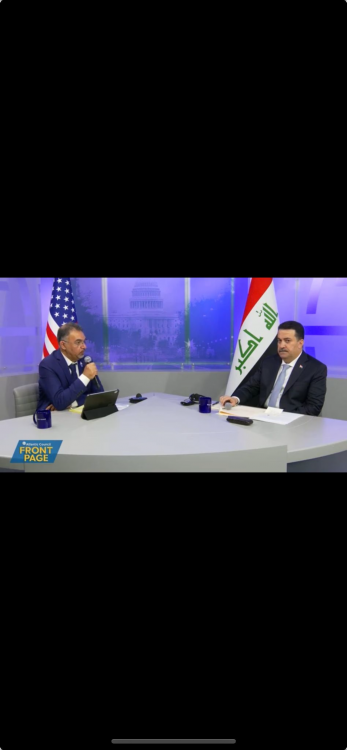
|

6ly410
-
Posts
23,335 -
Joined
-
Last visited
-
Days Won
144
Content Type
Gallery
Forums
Calendar
Store
Musicbox
Posts posted by 6ly410
-
-
-
-
3 hours ago, 6ly410 said:
and when it comes to the banking sector but this is going to actually raise the value of the IQD..
-
Imminent - GO RV
-
 2
2
-
-
wow….
-
🥁🤑
-
 1
1
-
-
go go RV!!!!!
-
 1
1
-
 5
5
-
-
-
: "dictated by the CBI....best status we could be in...we had an assessment and gives trust to a higher level from different global parties …....and when it comes to the banking sector but this is going to actually raise the value of the IQD...there is a consistent policy that the CBI is using and how they use the money for our own reserves....time is always short.……….and he changed the topic
-
 1
1
-
 4
4
-
-
raise the value….
-
 3
3
-
-
🥂
-
 1
1
-
-
It is at 1:28:45 on the video
-
 1
1
-
-
last 5 min… trust me u want to watch it
-
 2
2
-
 1
1
-
-
they are talking about the dinar….
-
 2
2
-
 1
1
-
-
Watch the last 5 min…..
-
 1
1
-
 2
2
-
-
-
 1
1
-
 1
1
-
 1
1
-
 1
1
-
 6
6
-
-
….. last 5 min
-
 2
2
-
 1
1
-
-
-
Maybe u should watch they talked about the dinar value…..
-
 1
1
-
-
-
-
-
-
Kurdistan Region Finance announces the distribution of salaries for the region’s employees next week
Baghdad / NINA / The Ministry of Finance and Economy of the Kurdistan Regional Government confirmed that government preparations are underway to prepare payrolls for the month of April, expecting to begin the process of disbursing salaries next week.
The Ministry's official spokesman, Honor Jamal, said during a press conference today: "The Ministry addressed all ministries and general directorates in order to prepare employee payrolls for the current month of April based on the decisions of the Federal Court, which obligated the Baghdad government to pay the salaries of employees of the region on the same basis as employees of the central and southern governorates."
He added, "Some ministries have sent payrolls, and some will send them within the next two days," noting that "after the eighteenth, the federal government will begin disbursing the salaries of federal ministries and governorates, and we will be within the schedule that the Federal Ministry of Finance will work on, and it is scheduled to send payrolls to Baghdad at the beginning of the week." "Next."
The spokesman for the Ministry of Finance and Economy stated that “the problem of salaries was resolved after the Federal Court’s decision last February, and the mechanism of sending was agreed upon, and the issue of salaries for the month of March related to resettlement was resolved and sent before Eid, and there is a general trend to solve the problem of salaries of employees of the region once and for all, and this is what "It was confirmed during the Prime Minister's visit to Washington."
Regarding the issue of late salaries for the year 2023, Jamal confirmed that “The Prime Minister of the Kurdistan Region addressed Baghdad for the purpose of disbursing salaries for three months of the year 2023, due to the failure to send the region’s dues from the 2023 budget in full, as the region’s share was about 16.497 trillion dinars, and what was done was His sending is 5,700 trillion and we are waiting for the Iraqi government’s response.”
Regarding promotions and professional bonuses, Honor Jamal pointed out that “the process requires time and agreement with the Federal Ministry of Finance regarding the mechanism for disbursing these bonuses and promotions, especially since the Federal Court has approved this matter. We have approached all ministries to send us the lists. Some of them have been sent and others will be sent in the following days.” ", stressing that "the issue requires meetings between the two parties and-
 1
1
-
 1
1
-



ALAQ
in Iraq & Dinar Related News
Posted
LIVE LINK